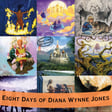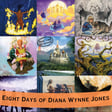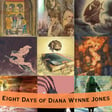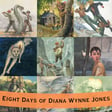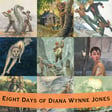
S2 Bonus Episode 1 - With Farah Mendlesohn
The thing we must notice is frequently identified by what is not described or told or explained.
In our first Season Two bonus episode, Farah Mendlesohn -- who literally wrote the book on Diana Wynne Jones -- joins us to bring a critic and historian's eye to the first two decades of DWJ's career.
Transcript available here: https://drive.google.com/file/d/1pUoTY4vf69pSgYCj-nTVKA7DCE_gePEF/view
In our next bonus episode, we'll be covering the short stories of the seventies and eighties as collected in Unexpected Magic and Mixed Magics, including:
Unexpected Magic: "Carruthers" (1972), "Auntie Bea's Day Out" (1978), "The Fluffy Pink Toadstool" (1979), "Dragon Reserve, Home Eight" (1984), "No One" (1984), "The Plague of Peacocks" (1984), "Enna Hittims" (1987), "The Fat Wizard" (1987), "The Green Stone," (1988), and "The Master" (1989)
Mixed Magics: "The Sage of Theare" (1982), "Warlock at the Wheel," (1984), and "Carol Oneir's Hundredth Dream" (1986)
And on September 17th we record our Q&A episode for the eighties, so please send us any thoughts before then!
